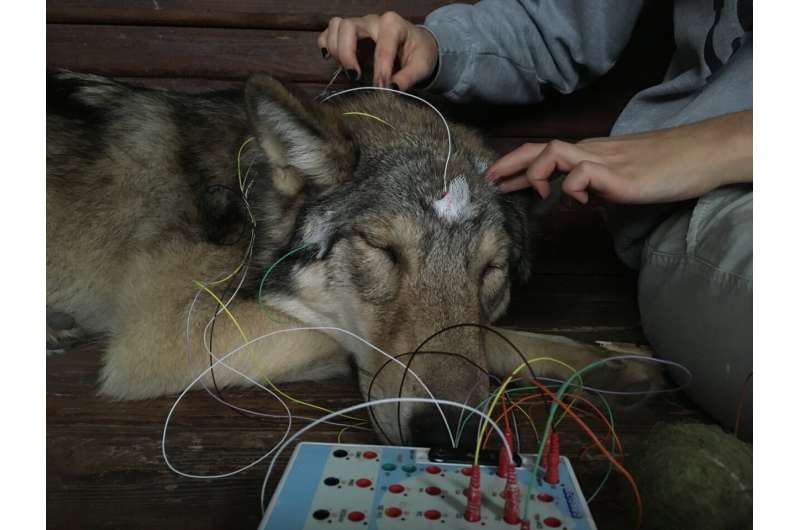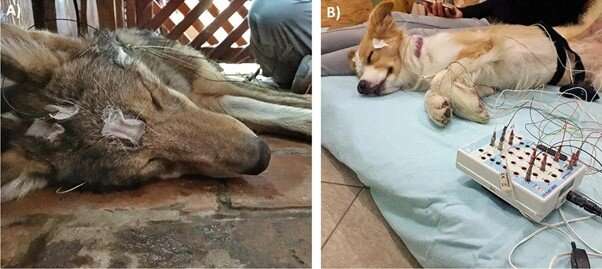
The Department of Ethology at Etvs Lornd University has measured the sleep of the wolf for the first time. Their study was published in a scientific journal.
A harmless procedure, similar to human sleep EEG methods, was used in the study.
There are advantages to studying the sleep of a domesticated species adapted to the human environment. Sleeping in a protected environment could have shaped the way humans slept. Similar changes could be expected in the sleep of other species. Dogs are similar to humans in that they sleep in unfamiliar environments.
In order to gain a better understanding of the effects of domestication and cohabitation with humans on sleep, comparing the dog to its wild counterpart, the wolf, offers a unique opportunity.

"Although dog-wolf comparative studies have been conducted in several areas of research, including behavioral and genetic studies, the neural processes of wolves are a largely unexplored field," said Anna Blint, researcher at the MTA-ELTE Comparative Ethology Research Group. Seven hand-raised, extensively socialized wolves were measured using the same methodology as has been used in family dogs. We were able to measure all of the sleep stages that were previously seen in dogs.
It may seem odd that wolves can be measured the same way as dogs. Wolves can be handled and comforted the same way as dogs by being hand-raised and socializing from a very early age. Wolves were surrounded by familiar people during the experiments and were cared for until they calmed down and fell asleep. The caretakers and experimenter soothed the wolves when they became aroused by praise and cuddles.
The time spent in REM seems to be less in dogs than in wolves, and this difference is even more apparent in the senior animals. The amount of REM sleep has been linked to a variety of effects, including stress, domestication, and memory consolidation.
Although the sample size is low and the age distribution of the subjects is too skewed to draw comparative conclusions, it can be considered an important first step in collecting adequate amount of data to properly describe the wolf's sleep. We suggest that using our reliable, easily applicable methodology in different labs may form the basis of an international, multi-site collection of similar samples.
More information: Vivien Reicher et al, Non-invasive sleep EEG measurement in hand raised wolves, Scientific Reports (2022). DOI: 10.1038/s41598-022-13643-x Journal information: Scientific Reports